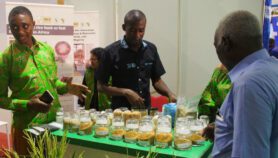Send to a friend
The details you provide on this page will not be used to send unsolicited email, and will not be sold to a 3rd party. See privacy policy.
If mHealth — the use of mobile phones to deliver health care products, treatments and services — is to transform health systems and avoid being merely a passing fad, large-scale funders and implementers must coordinate their activities, prioritise investments and work together to measure outcomes, both globally and locally, argues Amanda Glassman of Global Health Policy.
There has recently been a surge of interest in mHealth, which enables patients to receive real-time public health warnings, for example, or manage their own care.
But many of these deployments are small-scale and lack the evidence of success needed to encourage further investments, argues Glassman. And mHealth tools are often designed without referring to real social needs, leaving implementers searching for an applicatiaon rather than producing solutions for existing problems.
Coordination between funders and implementers is essential if the potential of mHealth is to be realised, she argues.
For example, coordination will help avoid the need for several mobile phones to access different mobile applications from different funding sources, or help systems such as the HIV/AIDS Health Management Information System of the President’s Energency Plan for AIDS Relief to reach beyond their initial application.
Glassman suggests a set of actions through which global healthcare funders can enable mHealth to be fully realised and integrated into healthcare delivery.
She says that funders and implementers need clear monitoring and evaluation plans, even on the smallest pilots, and that this knowledge must be shared; that mobile initiatives should be tied directly to health sector needs and, by working with developing country app and innovation labs, ensure that technologies meet on-the-ground realities; and that bodies such as the mHealth Alliance should work with major global health funders towards facilitating coordination on issues such as evidence, standardisation, interoperability and knowledge sharing.













